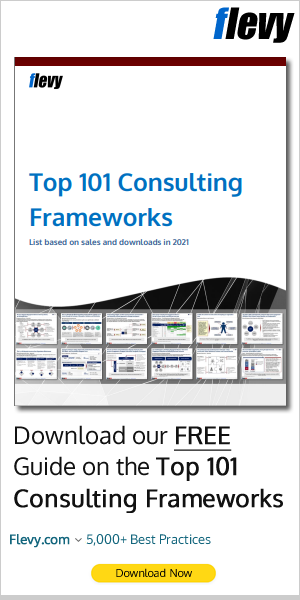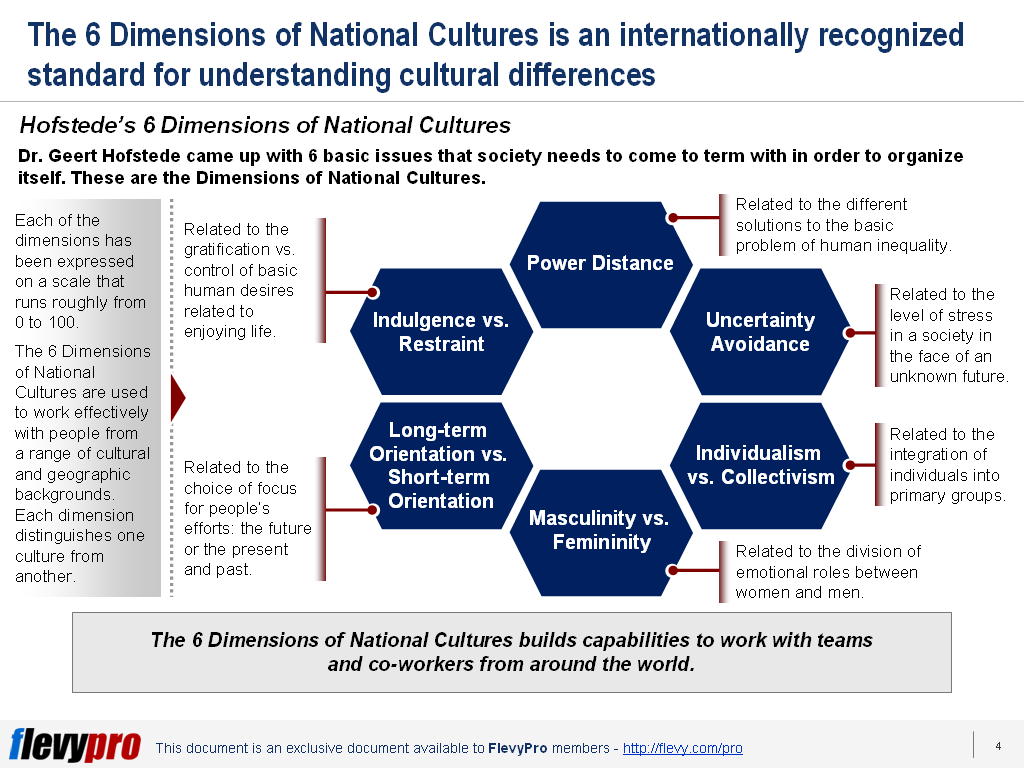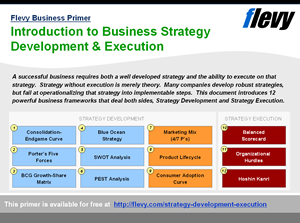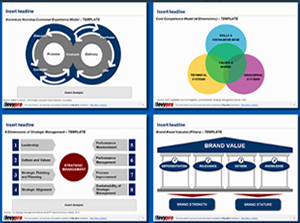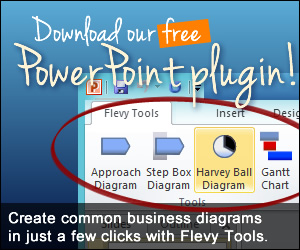Editor's Note: Take a look at our featured best practice, Organizational Culture Assessment & Questionnaire (57-slide PowerPoint presentation). In today's rapidly evolving business landscape, an Organizational Culture Assessment is an indispensable tool for visionary leaders. It offers a strategic lens to decode the complex tapestry of workplace dynamics, unveiling not only the vivid patterns of strengths but also the subtle undercurrents [read more]
Conquering Cultural Differences through the 6 Dimensions of National Cultures
Also, if you are interested in becoming an expert on Organizational Culture (OC), take a look at Flevy's Organizational Culture (OC) Frameworks offering here. This is a curated collection of best practice frameworks based on the thought leadership of leading consulting firms, academics, and recognized subject matter experts. By learning and applying these concepts, you can you stay ahead of the curve. Full details here.
* * * *
Cultural differences can be a barrier to communication. This could affect our organization’s ability to build 
When faced with cultural differences, we need to understand the cultural dimensions of our company to be able to strategize our collaborative approach. When this happens, we get to break down the barriers that are holding us back from effectively communicating with each other and achieving organizational growth.
The 6 Dimensions of National Cultures
Dr. Geer Hofstede came up with 6 basic issues that society and even organizations need to come to terms with in order to organize itself. These are the 6 Dimensions of National Cultures.
The 6 Dimensions of National Cultures are used to work effectively with people from a range of cultural and geographic backgrounds. Each dimension distinguishes one culture from another. Having an understanding of these dimensions will also allow us to better under the intrinsic Corporate Cultures of organizations from other parts of the world.
- Power Distance
Power Distance is the extent to which the less powerful members of organizations and institutions accept and expect that power is distributed unequally. Power Distance may be differentiated into Small Power Distance Index or Large Power Distance Index. When the hierarchy is clearly established and society accepts an unequal, hierarchical distribution of power, this is Small Power Distance Index. The reverse of this is the Large Power Distance Index.
- Uncertainty Avoidance
Uncertainty Avoidance is the degree of society’s tolerance for ambiguity, in which people embrace or avert an event of something unexpected, unknown, or away from the status quo. Strong Uncertainty Avoidance exists when stiff codes of behavior, guidelines, and laws are preferred. If society is more accepting of differing thoughts or ideas and fewer regulations are imposed, a Weak Uncertainty Avoidance exists.
- Individualism vs. Collectivism
Individualism vs. Collectivism is the degree to which people in a society are integrated into groups. There is Individualism when “I” is more emphasized than “We.” Collectivism is more on in-groups laced with undoubted loyalty and support for each other when conflict arises with another in-group.
- Masculinity vs. Femininity
Masculinity is society’s preference for achievement, heroism, assertiveness, and material rewards for success. Femininity is a preference for cooperation, modesty, caring for the weak, and quality of life.
- Long-term Orientation vs. Short-term Orientation
Long-term Orientation vs. Short-term Orientation associates the connection of the past with the current and future actions/challenges. There is Long-term Orientation when adaptation and circumstantial, pragmatic problem solving is viewed as a necessity. When traditions are honored and kept, this is Short-term Orientation.
- Indulgence vs. Restraint
Indulgence vs. Restraint is essentially a measure of happiness; whether or not simple joys are fulfilled. A society is in a state of Indulgence when it allows relatively free gratification of basic and natural human desires related to enjoying life and having fun. They believe that they are in control of their own life and emotions. Restraint is when society controls the gratifications of needs and regulates it by means of strict social norms.
Understanding the 6 Dimensions of National Cultures and Its Approaches
Having a good understanding of the 6 Dimensions of National Cultures allows organizations to better manage changes not only from within but most importantly, changes in our external environment. Cultural differences exist between and among countries that we need to know, understand, and learn how to manage well. In the global world of business where we now need to cross boundaries and forge synergy, understanding the 6 Dimensions of National Cultures and Its Approaches has become a competitive strength.
Interested in gaining more understanding of the Hofstedes 6 Dimensions of National Cultures? You can learn more and download an editable PowerPoint about Hofstedes 6 Dimensions of National Cultures here on the Flevy documents marketplace.
Are you a management consultant?
You can download this and hundreds of other consulting frameworks and consulting training guides from the FlevyPro library.

Want to Achieve Excellence in Organizational Culture (OC)?
Gain the knowledge and develop the expertise to become an expert in Organizational Culture (OC). Our frameworks are based on the thought leadership of leading consulting firms, academics, and recognized subject matter experts. Click here for full details.
Organizational Culture, also referred to as Corporate Culture or Company Culture, is the set of underlying and shared beliefs, vision, assumptions, values, habits, business philosophies, and ways of interacting that contribute to the unique social and psychological environment of the organization.
Organizational Culture permeates the organization, affecting all functions and all levels. It starts with what employees do and how they do it—and ultimately drives why employees do what they do. Culture is like the DNA of the organization.
That is why a healthy Company Culture leads to strong Performance, Growth, and Excellence—and the opposite is also true. For any initiative to be successful, we need a Corporate Culture that inherently supports that initiative.
Learn about our Organizational Culture (OC) Best Practice Frameworks here.
Readers of This Article Are Interested in These Resources

|
|
8-page Word document
|
|
22-slide PowerPoint presentation
| |||
About Joseph Robinson
Joseph Robinson is the Vice President of Strategy at Flevy. Flevy is the marketplace for best practices in business management. Learn how the Fortune 100 and global consulting firms do it. Improve the growth and efficiency of your organization by leveraging Flevy's library of best practice methodologies and templates. The documents at Flevy (https://flevy.com) are of the same caliber as those produced by top-tier management consulting firms, like McKinsey, BCG, Bain, and Accenture. Most were developed by seasoned executives and consultants with 20+ years of experience. Flevy covers 200+ management topics, ranging from Digital Transformation to Growth Strategy to Lean Management. You can peruse a full list of management topics available on Flevy here. Prior to Flevy, Joseph worked as an Associate at BCG and holds an MBA from the Sloan School of Management at MIT. You can connect with Joseph on LinkedIn here.
Top 10 Recommended Documents on Corporate Culture
» View more resources Corporate Culture here.
» View the Top 100 Best Practices on Flevy.
